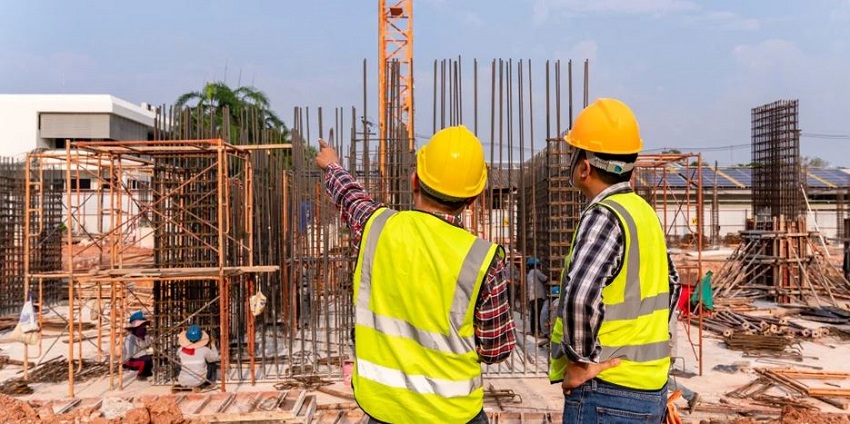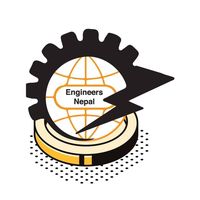 31 January 2026
31 January 2026  २०८२-१०-१८ (शनिबार)
२०८२-१०-१८ (शनिबार)
Are we producing Experts in Civil Engineering sector in Civil Services of Nepal?

This article highlights the need and importance of expertise in civil services of Nepal. This article also briefly presents the current legal provisions and way forward to produce enough expertise in several sub-sectors of civil engineering.
Expertise means “a high level of skill or knowledge”. Expertise is special skill or knowledge that is acquired by training, study or practice. (Source: online dictionaries)
Civil engineering is a professional engineering discipline that deals with the design, construction, and maintenance of the physical and naturally built environment, including public works such as roads, bridges, canals, dams, airports, sewage systems, pipelines, structural components of buildings, railways etc. (Source: Wikipedia)
There are a number of sub-disciplines within the broad field of civil engineering. Civil engineers apply the principles of geotechnical engineering, structural engineering, earthquake engineering, water resources (including hydropower, irrigation) engineering, sanitary engineering, transportation (including highway, railway, airport, waterway, ropeway) engineering, construction engineering etc. to residential, commercial, industrial and public works projects of all sizes and levels of construction.
These sub-disciplines could be further categorized into specialized areas. For example, Transportation engineering includes areas such as transportation planning, design, traffic engineering, urban road engineering, pavement engineering, Intelligent Transportation System (ITS) etc. The infrastructure development requires coordinated contributions from multiple engineering sub-disciplines. Such as Highway and Bridge Engineering require several expertise like structural engineers, hydrological and hydraulic designers for design of drainage facilities and bridge waterway, geotechnical engineers for design of foundations, pavement engineers, traffic engineers for design of intersection, traffic signals etc., asset management experts or maintenance experts etc. They also require transportation economists for feasibility studies, safety auditors for ensuring transportation safety, environmental and social experts for environmental and social impact assessments. For public works, procurement experts, claim experts etc. are needed. It should be understood that it is impossible to design and implement an infrastructure system with the help of a single civil engineer. It is instead the work to be done by the coordinated efforts of relevant sub-disciplines and sub-sectors. The experienced expertise in each sub-discipline and sub-sectors are required for the efficiency and effective design, implementation and operation/maintenance.
Who are experts/specialists and why do we need them?
The engineers in infrastructure development and management sector have to face several challenges like natural and man-made disasters that impose adverse impacts to infrastructure system. The nature offers a new kind of problem every single time. We need problem solvers for the disaster resiliency and quick recovery. The problem solvers are the experts who could prescribe the right diagnosis, right design for treatment and timely implement it efficiently and effectively for continuing the service delivery. The right diagnosis, right design of treatment option, effectiveness, and efficiency are obtained from experienced professionals who have faced the multiple similar challenges in the past and have either solved them successfully or have faced failures rendering them lessons. It could be affirmed that the quality/capability of a professional expert is function of their motivation level to solve the problem in past cases, their earnestness to learn, diagnose, treat and solve the problem in past cases and number of cycles they have faced such problems. The professional experts have to do subtle study, research, observe, record data or information, interpret, conclude, publish and present it to the engineering community for discussions. Such journey of numerous cycles done with full motivation and enthusiasm help a professional expert to be a genuine problem solver.
Do we have environment in Nepal to produce professional experts and genuine problem solvers?
Let us take an example of engineering public service sector. As per Civil Service Act 2049 BS, there are ten different service sectors. Some of them are Nepal Engineering Service, Nepal Agriculture Service, Nepal Judicial Service, Nepal Foreign Service, Nepal Administration Service, etc.
As per Nepal Engineering Service Regulations 2051 BS, there are several sub-groups like General, Highway, Sanitary, Building and Architect, Hydropower, Hydrology under civil engineering group. The basic qualification required for all sub-groups under civil engineering group is Bachelor’s Degree in Civil Engineering. Engineers under General sub-group are responsible for planning, design, construction and maintenance of local infrastructures such as local roads, local road bridges, trail bridges, local water supply schemes, public buildings, local irrigation schemes etc. Engineers under Highway sub-group are responsible for planning, design, construction and maintenance of highways and highway bridges. Similarly, engineers under Sanitary sub-group are responsible for planning, design, construction and maintenance of water supply and sanitation schemes.
It is obvious that civil engineering has diverse sub-sectors. Realizing the importance of expertise in particular sub-sector, the provision of dedicated sub-groups seems to have been regulated through the acts and regulations. The above legal provision of sub-groups in civil engineering is an effort to produce specialists. However, unfortunately, it has not been proved enough for the same.
Since civil engineering sector has to deal with risks, vulnerabilities and challenges in every step, we need expertise in particular sub-sector and genuine problem solvers in the departments. For example, in order to plan, design, construct and maintain a motorable bridge, we need geotechnical experts, hydrology and hydraulic experts, structural engineers, procurement and contract management experts, construction management experts, Quality control specialists, Maintenance experts etc. In order to gain expertise, the professionals need to dedicate several years in the particular job. In order to gain genuine expertise, an engineer requires rigorous participation in each phase for numerous cycles. After facing several cases for several years, an engineer could turn to be a problem solver.
However, there is no conducive environment that focuses on the production of experts or specialists in at least current civil engineering group of civil service. In other words, there is no proper motivation factor to encourage someone to become a specialist. As a result, we are producing generalists rather than specialists. The engineers are supposed to change their responsibilities every two years. A single engineer gets involved in procurement of works, survey and design of infrastructures, contract management, construction supervision, maintenance and he/she is supposed to keep on shifting his/her responsibilities throughout the career. Is it the way how we could produce experts/specialists? Definitely NO. With such sequence of discontinuity of responsibilities, we are only producing generalists at the end. Due to the lack of enough specific experience, the generalists will have to rely on rarely produced specialists. This will result in piling up of problems waiting for rare specialists to visit and solve. In worst case, the generalists may end concluding with inappropriate diagnosis followed by wrong treatment choice and inappropriate implementation failing to give sustainable solutions. The latter case if happens will result in loss of scarce resources of underdeveloped country like Nepal.
Way Forward
The civil engineers should get an opportunity to make a choice regarding their long term career within first few years of their practice. In the first few years, they get enough time to choose their particular sub-sector of interest. Then they should be provided with the responsibilities to work at their sub-sector of interest. There should be mechanism to incentivize them for working at the particular sub-sector. If there are incentives in one sub-sector and no incentive in other, naturally the engineers will fail to continue in the sub-sectors where there is no incentive. Further, the civil engineers should be regularly trained in the particular sub-sector of their interest. They should be encouraged and incentivized for subtle study, research, data acquisition and preservation, data analysis and processing, publication of scientific papers regarding their innovations and discoveries and presenting in the particular engineering communities. The regular publications will strengthen the sector by establishing robust medium to preserve the findings that can be valuable for further sectorial development and future problem solving. The engineers should be provided opportunities to participate in ongoing real projects around the developed countries. For example, the legal provisions could be made providing opportunities for government engineers to take leave and go for international jobs for a certain time before they come back and continue serving Nepal. Such opportunities may be created under G to G agreements. The current legal provision for providing opportunity for civil servants to take study leave and go for foreign education is praiseworthy. It should be continued with added government efforts to send government engineers abroad for higher studies, exposure to developed communities and encourage them to come back for continuing their services in respective department of Nepal. The current scale of remuneration of civil engineers should be re-evaluated. Is it fair for a civil engineer to remunerate with NRs. 35,000 a month and expect him to work as a client’s engineer who has to take the responsibilities of survey, design, procurement, construction supervision, contract management and quality control of civil works by himself?
In conclusion, the current environment in civil service of civil engineering group, is not favorable for civil engineers to focus their career in particular sub-sector and become a specialist continuing their career in the same area. This is preventing the departments to enrich themselves by producing expertise and problem solvers. This situation may invite the huge losses in public works sector due to probable costly investment mistakes. This also increases the dependence of our departments to foreign experts and drainage of scarce resources to foreign countries. The urgent need of the day is to plan and intervene in order to incentivize well and produce local expertise/specialists in civil services in sub-sectors like geotechnical, structural, procurement, quality control, pavement, dam, hydrology, road safety engineering etc.
-Er. Prem Prakash Khatri





